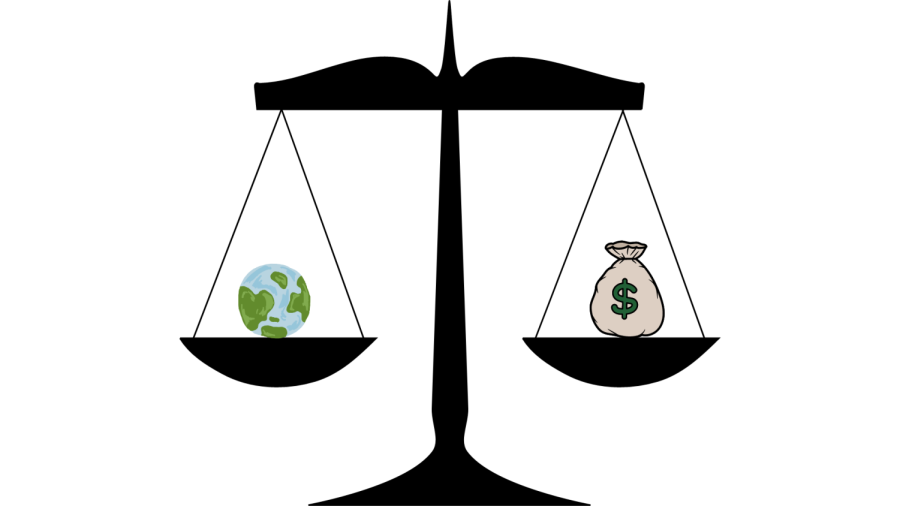In the afterword of his best-selling book “Sapiens: A Brief History of Humankind,” Yuval Noah Harari warns that humans, through their frenetic search for personal comfort and amusement, are creating havoc on earth and driving other species to extinction. He concludes his theory of how humans came to rule the world with a poignant warning: “Is there anything more dangerous than dissatisfied and irresponsible gods who don’t know what they want?”
Harari calls out what many see as the self-destructive nature of capitalism. Capitalism fundamentally relies on infinite growth to support expansion. Growth comes from increased consumption which, as dramatically outlined by David Attenborough in his 2020 documentary “A Life on our Planet,” only depletes Earth’s natural resources.
Maintaining infinite growth with finite resources can surely lead humans toward inevitable self-destruction. With private owners – whose primary goal is to increase their own profits – controlling trade and industry, it seems improbable that free market capitalism can help find solutions to the climate crisis.
On the other hand, head of BlackRock Larry Fink, the world’s largest private assets managing company, argues in his letter to Chief Executive Officers that it is possible for capitalism to provide a road to sustainable economic development. Fink acknowledges that this shift will require reimagining how we conduct business and generate profits today. Yet, he explains that the only way we can sustain economic development is through circular innovation.
Increasing consumer demand and need for sustainable products and renewable energy can only incentivize companies to supply goods and solutions that provide an answer to that demand.
Ultimately, companies depend on support from their shareholders, employees and consumers. While Fink acknowledges that the pursuit of profit is what drives markets, he urges CEOs to consider that consumers will increasingly look to do business with companies that share their values. Fink’s belief is that the increasing importance of sustainability for consumers will ultimately lead private companies to innovate.
With a framework and incentives from governments and increasing consumer awareness and concern for climate change, I am a believer that capitalism, as a system, can be used as a catalyst in combating the climate crisis. All economies rely on the mechanism of supply and demand and all investors understand that high demand generates high revenue.
Thus, increasing consumer demand and need for sustainable products and renewable energy can only incentivize companies to supply goods and solutions that provide an answer to that demand. Government incentives and regulations can further encourage the private sector and help course-correct the potential negative effects of an unregulated marketplace.
In his book, Yuval Noah Harari cleverly shows how man’s ability to cooperate in large numbers, thanks to the belief in collective “myths,” is the pillar of our civilization. According to Harari, fiction and collaboration are what have made humans the dominant species on earth. While humans may seek personal benefit, the understanding of the greater good prevails.
The abolition of slavery, for example, was not driven by the economic advantage that would have benefited a few but by the development of a collective belief in individual freedoms for all. In that sense, there is no reason why environmental advocacy, just like the concept of human rights, cannot make free market economic models evolve towards more sustainable business solutions.
While humans may seek personal benefit, the understanding of the greater good prevails.
Moreover, the founder of Patagonia, Yvon Chouinard, transferred his ownership of the brand Patagonia to a designated nonprofit organization tasked to ensure all the company’s profit will be used to mitigate climate change, according to The New York Times. With this unprecedented move, the Chouinard family is paving the way to a new form of socially responsible business and, at the same time, contributing to evolving the collective myths of our modern society.
If we continue to build public support for the urgency to address climate change, both governments and the private sector will have to come together to find solutions. This unity, in turn, helps capitalism become an avenue for sustainable economic development.






